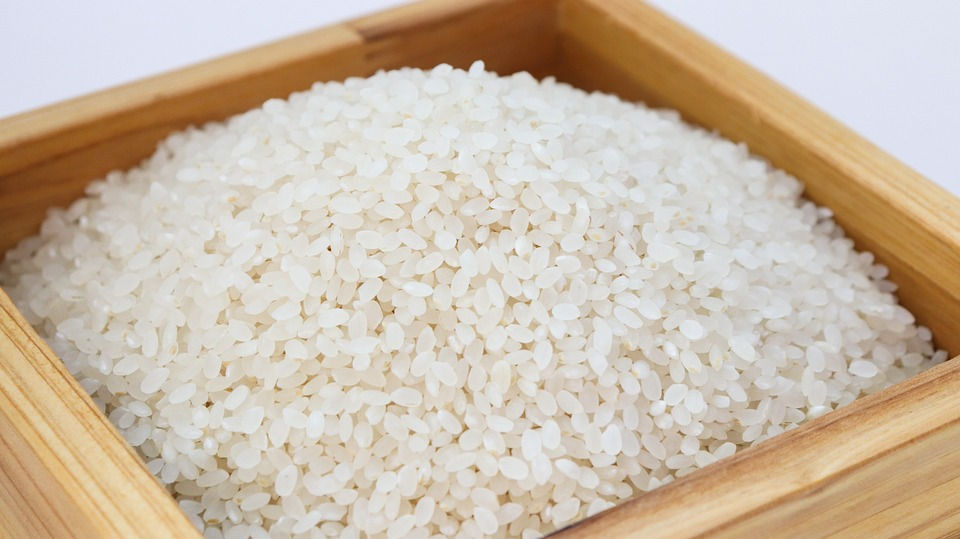Knowing the price of rice in Pakistan is incredibly important for anyone living there or those considering moving to the country. Rice is a staple food item consumed by the populace, and with such an economical importance, it’s essential for people to be aware of how much each variety costs so that they can budget their grocery bills accordingly. This blog post will provide you with an up to date list of all major varieties and brands of rice on sale in Pakistan. Whether you’re looking for basmati, jasmine, broken grain or any other kind we’ve got everything listed right here! So if you want to know more about which type suits your need best, stop scrolling and start reading!
Rice is a staple and important part of the Pakistani diet so it’s important to stay up to date on rice prices in order to ensure you are getting the best deal. In Pakistan 2024, here is a list of current rice price per 1 kg, 25kg 40kg and 50kg:
Rice Price in Pakistan
The cost of rice has risen dramatically in Pakistan over the past few years, making it increasingly difficult for families to put enough food on the table. A one-kilogram bag of rice now retails for between Rs. 350 and Rs. 450, while a 25-kilogram bag can cost anywhere from Rs. 5000 to Rs. 7800, and a 50-kilogram bag anywhere from Rs. 14999 to Rs. 16800. This represents an increase of up to 473 percent depending on the variety of rice chosen, squeezing the household budgets of many Pakistani families who rely on it for sustenance. The government needs to step in and provide relief to struggling families by creating programs that will help bring down the prices and alleviate some of their economic hardship.
1kg Rice Price in Pakistan
The price of 1kg of rice in Pakistan is quite costly, ranging from Rs 350 to 450. This puts a considerable strain on the budgets of most households in the country, who use a large quantity of it regularly for their meals. In spite of this, the demand for Pakistani rice remains high, made obvious by the amount exported to neighbouring countries each year. Therefore, when considering solutions to ease the burden of rising food costs in Pakistan, closer attention should be paid to the production and transportation costs associated withrice cultivation and distribution. With intelligent investment in these areas, it will hopefully become possible for local communities to buy rice at much lower prices without compromising on quality.
| Name | Minimum Price | Maximum Price |
| 1 KG Rice | Rs. 350 | Rs. 450 |
25 kg Rice Price in Pakistan
Rice is a staple food, and the recent news of a major price increase in Pakistan has understandably caused alarm among consumers. According to reports, 25 kg bags of rice have faced a sharp upward jump in pricing, with the minimum price now being Rs 5000 and the maximum price being Rs 7800 an increase of nearly 60%. This sudden jump in prices is evidently having a significant economic impact on consumers, but it’s still not yet clear what underlying causes are driving these changes. It remains to be seen how authorities will respond to this worrying situation and if any initiatives can be made to ease the burden on consumers and avoid further escalation in rice prices.
| Name | Minimum Price | Maximum Price |
| 25 KG Rice | Rs. 5000 | Rs. 7800 |
50 KG Rice Price in Pakistan
In Pakistan, 50 KG rice is available with a wide range of prices. Depending on the type of grain and quality, you can purchase this size bag of rice for anywhere between Rs. 14999 to Rs. 16800. It is worth noting that many locations across the country also offer discounts which make buying in bulk even more cost effective and efficient. Buying any size of rice in bulk today is an essential component to stretching your budget and meeting the nutritional needs of your family due to increased food costs and growing population.
| Name | Minimum Price | Maximum Price |
| 50 KG Rice | Rs. 14999 | Rs. 16800 |
40 KG Rice Price List Today in Pakistan
| Rice Brand Names | Type of White | Type of Sella | Type of Steam |
| Supri 40 KG Bag Price | Rs. 2700 | Rs. 2900 | Rs.3000 |
| Super Basmati Old 40 KG Bag Price | Rs. 4900 | Rs. 5300 | Rs. 6000 |
| New Super Basmati 40 KG Bag Price | Rs. 4700 | Rs. 5000 | Rs. 5400 |
| Super Fine 40 KG Bag Price | Rs. 3000 | Rs. 3580 | Rs. 4000 |
| Super B1 Broken 40 KG Bag Price | Rs. 2600 | Rs. 2750 | Rs. 3150 |
| Super B2 Broken 40 KG Bag Price | Rs. 2350 | Rs. 2450 | Rs. 2800 |
| C 9 40 KG Bag Price | Rs. 2600 | Rs. 2800 | Rs. 3300 |
| Super Short Grain 40 KG Bag Price | Rs. 3200 | Rs. 3400 | Rs. 3600 |
| Irri 6 40 KG Bag Price | Rs. 2350 | Rs. 2600 | Rs. 2800 |
| Kainat 1121 40 KG Bag Price | Rs. 5200 | Rs. 6000 | Rs. 6400 |
| Kainat 1121 Short Grain 40 KG Bag Price | Rs. 3200 | Rs. 3400 | Rs. 3600 |
| 386 Basmati 40 KG Bag Price | Rs. 2850 | Rs. 3300 | Rs. 3600 |
| Kainat 1121 B1 Broken 40 KG Bag Price | Rs. 2600 | Rs. 2800 | Rs. 3200 |
| Kainat 1121 B2 Broken 40 KG Bag Price | Rs. 2200 | Rs. 2400 | Rs. 2800 |
| 1509 40 KG Bag Price | Rs. 4300 | Rs. 4900 | Rs. 5100 |
| Super Kainat Rice Rate 25 KG Bag | Rs. 4200. | Rs. 4300. | Rs. 4600. |
Rice is an important crop in Pakistan, accounting for around 40% of the total cultivated area. The country is one of the world’s largest exporters of rice and it has also been a major source of nutrition for its people. Rice production in Pakistan has increased significantly over the past few decades, which has contributed to the economic growth of the country. Rice is usually grown in the plains and terraces, where it can benefit from ample water availability for irrigation.
The government of Pakistan has been actively promoting rice production and exports to meet rising demand. Various measures have been taken to enhance productivity, improve quality, reduce costs and expand market access for Pakistani farmers. This includes investment in infrastructure, such as irrigation systems, and capacity-building initiatives for farmers to improve their knowledge and skills.
Rice prices in Pakistan fluctuate year to year, depending on the availability of rice in the market. In recent years, rising fuel and fertilizer costs have driven up the price of rice production, leading to higher consumer prices. The government has implemented policies aimed at controlling prices and ensuring that farmers receive a fair price for their crops. These measures have had a positive effect, with prices remaining stable in recent years.
Pakistan is the third-largest producer of rice in the world and is a major exporter to other countries. The country produces a variety of different types of rice, including Basmati and Jasmine, as well as long-grain varieties such as Doongara and Sugandha. Pakistan is especially well-known for its high quality basmati rice, which is highly sought after in markets around the world. The government sets a minimum support price (MSP) for paddy each year to provide farmers with a fair return on their crop.
Rice prices in Pakistan are also affected by other factors such as the exchange rate between the Pakistani rupee and other currencies. When the rupee is strong, rice prices tend to be lower than when it is weak. A strong rupee means that Pakistani exports are more competitive in international markets, meaning the country can export more of its product and receive better returns.




